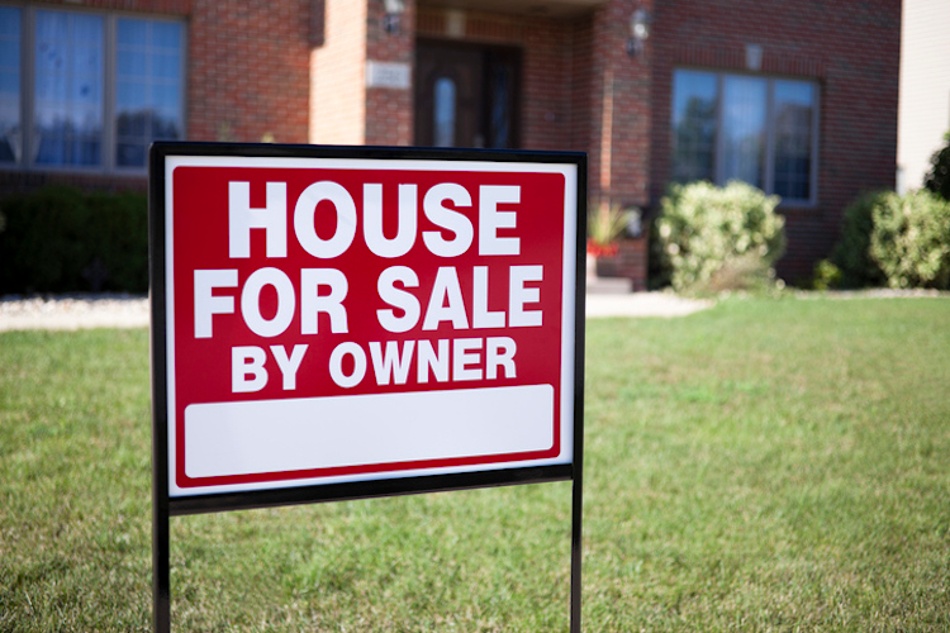With the way that home prices keep rising today, more and more owners are wondering if it makes sense to sell without using an agent to save on the sales commission. While selling a home without a real estate agent does take some time and effort, it’s something that can definitely be done.
In this article, we’ll begin by discussing the pros and cons of not using a real estate agent. Then we’ll explain the steps to follow to sell your house without a real estate agent including how to determine the right asking price and some of the best websites for selling your home yourself.
Key takeaways
- Three reasons for selling a house without a real estate agent are saving on the sales commission, having more control over the transaction, and keeping the transaction private.
- Potential drawbacks to selling without a real estate agent include mispricing the home and having to handle negotiations on your own.
- Five steps to selling a house without an agent are determining market value, preparing the property for sale, marketing the home, negotiating the purchase and sale, and managing the closing.
Benefits of selling a house without a real estate agent
Let’s begin by looking at some of the potential benefits of not using a real estate agent when you sell a house:
1. Save moneyFor most people, the biggest benefit of doing a FSBO (for sale by owner) is saving money by not having to pay a sales commission.
A real estate sales commission is typically a percentage of the sale price of a home. For example, if a home sells for $300,000 and the sales commission is 6%, a seller pays a real estate agent sales commission of $18,000.
According to Realtor.com, the commission is split between the buyer’s agent and the seller’s agent. Of course, if you’re selling your home without using a real estate agent, you could still agree to “cooperate” with a real estate agent.
A buyer’s agent who brings a ready, willing, and able buyer will generally be happy to receive a sales commission of 3%, which means that a seller in this example would still save $9,000 in sales commission.
2. More controlSelling without a real estate agent may also give you more control over the entire sales process, from before the home is listed for sale to the day that escrow closes and the buyer receives the keys.
For example, you can have control over the listing price by researching recent sales comps online or hiring an appraiser to help determine the fair market property value. By comparison, a real estate agent may encourage you to price your house “competitively” so that the agent receives his or her sales commission quicker.
You also have more control over when showings are scheduled and whether or not to hold open houses. If you have a rental property occupied by tenants, showings by a real estate agent can be extremely disruptive to the tenant, and may even give a tenant an excuse to break their lease if their rights are violated.
3. Increased privacyWithin 1 business day of marketing property to the public, the MLS Clear Cooperation Policy requires the listing broker to submit the listing to the MLS (multiple listing service). Once a property appears on the MLS, anyone with access to the MLS or syndicated listing websites like Realtor.com can learn all there is to know about your home.
In some cases, letting as many people as possible know a home is for sale can be a good marketing strategy, such as when you are selling a primary residence to people looking to buy a home of their own.
But some sellers may prefer to sell without listing in exchange for having more privacy and security. For example, if you own a rental property, you may choose to focus your marketing on other real estate investors rather than having to deal with non-productive inquiries from the general public or calls from real estate agents who saw the home on the MLS.
How to sell a house without a real estate agent
Here are the main steps to follow to sell a house without a real estate agent, along with some of the best ways to list your home for sale without a real estate agent.
1. Determine market value
Determining the correct fair market value of your house is a key step for selling without an agent. Pricing too high may result in your listing languishing on the market for months, while accidentally underpricing your home is just like leaving money on the table.
Here are some of the main ways to determine the market value of a home:
- Order an appraisal from a licensed real estate appraiser. Home appraisals usually cost between $300 and $425 for a single-family home. The appraiser search page on Realtor.com and asking the marketing representative at your local title company for a referral are two ways to find a professional appraiser.
- Ask a real estate agent for a comparative market analysis. Also known as a CMA, most real estate agents are more than willing to pull sales comps and put together a CMA for free to help estimate the value of your home. Even if you don’t list your home with them, an agent may be able to bring in offers from potential buyers they represent.
- Use online tools to check recent sale comps and active listing prices. Good sources for browsing property listings and researching sales trends include Realtor.com, Redfin, Trulia, Zillow, and Roofstock. Comps that are most similar to the home being sold are generally the best ones to use. Be sure to take into account factors such as square footage, number of rooms, property conditions, construction date, and lot size.
2. Prep the property
Buyers looking for a primary residence are generally more subjective than investors who are most concerned with running the numbers.
If you’re selling your home to an owner-occupant, be prepared to make any needed repairs, repaint every room in today’s designer colors, declutter by moving extra furniture and boxes into off-site storage, and professionally clean and deodorize the home.
On the other hand, if you’re selling your home as a rental property, your prep work will be a little bit different. An investor will still expect the home to be in good condition, but they will be just as interested in understanding the potential ROI.
Take a little bit of time and put together a buyer’s folder with documents such as the tenant lease agreement, rent roll, and copies of the invoices for recent capital repairs. If you’re using a free rental property financial software system like Stessa, print out last year’s and year-to-date financials like the income statement and net cash flow report.
3. Market your home for sale
There are several things you can do to market our home for sale, including tried-and-true tasks like putting up a “For Sale” sign, hiring someone to design a sales flyer that can be printed or emailed, and setting up a free property website using a website builder like Weebly or Wix.
The majority of buyers use online resources when shopping for a home, which means it’s more important than ever to market your home for sale online. Some of the best websites for listing a home for sale without an agent include Zillow, Redfin, Trulia, FSBO.com, and even Craigslist.
Another good place to list a home for sale online is the Roofstock Marketplace. Sellers only pay a 3% sales commission or $2,500, whichever is greater, on Roofstock, and you can list a single-family home or small multifamily property for sale, even if the home has never been used as a rental property before.
Roofstock has a global network of buyers and sellers who are always on the lookout for good rental property. In fact, in less than 6 years, Roofstock has completed more than $4 billion in single-family rental (SFR) transactions.
4. Negotiate the contract
Not using a real estate agent to sell your home means you’ll need to be prepared to negotiate with a prospective buyer or a buyer’s real estate agent. Agents are required to treat the general public fairly and professionally, even if the person they are dealing with isn’t their client, but you may still want to keep your guard up.
If a buyer tries to low-ball by making an offer less than your asking price, or asks for countless contingencies and closing cost assistance, you may want to counteroffer back and forth until you come to a meeting of the minds.
The purchase and sale agreement should include every detail of the transaction, including earnest money amount, purchase price and down payment, contingencies such as an appraisal and inspection, any closing concessions made by the seller, and the date and location of the closing.
You can usually obtain a state-specific real estate purchase and sale agreement from a local real estate attorney. If you’re selling on Roofstock, you can manage offers completely online and the Roofstock team will help with the contract once you’ve accepted the winning bidder.
5. Manage the closing
Each state has a specific legal process for handling a real estate closing. Some states require a real estate attorney at a closing, while other states use an escrow/title company, or a combination of both.
According to Stewart Title Guaranty Company, a real estate closing follows these basic steps:
After the purchase and sale agreement is signed, a copy is delivered to the escrow agent, usually with an earnest money deposit. Public records are searched for documents such as deeds, mortgages, and liens, and the legal owner of the property is verified and any debts against the property are determined.
The escrow agent reviews the lender’s instructions and requirements (if the purchase is being financed), assembles all legal and loan documents, prepares closing statements, and schedules the closing.
The seller signs the deed and closing affidavit, the buyer signs the new note and mortgage, any existing loan is paid off, and all parties are paid – including the seller, attorneys, and real estate agents. The transaction is recorded in the county where the property is located, and title insurance policies are sent to the new lender and the buyer.
Companies that buy houses for cash
Another option for selling a house without a real estate agent is to sell to an iBuyer. Also known as an Instant Buyer, iBuyers may be a good option for sellers who don’t want to deal with the hassles of a conventional sales process, such as making repairs, holding open houses, or negotiating a purchase and sale agreement.
Selling to an iBuyer for cash can be done in just a few simple steps:
- Submit your property address online or by making a phone call to an iBuyer.
- Receive a cash offer within 1-2 business days.
- Schedule a time for the iBuyer company to inspect your home.
- Review and accept the final offer, or choose an alternate way to sell your home.
- Close and receive cash within 10-14 business days.
To learn more about how to sell your home for cash, visit Roofstock Offers.
Final thoughts
Selling your house without an agent can be a good way to save money on the sales commission and have more control over the transaction. But selling a home yourself will take time, effort, and work. Property owners who sell without a listing agent should be sure to thoroughly research the local market to set the right asking price, choose the right places to advertise, and be ready to negotiate when the right buyer comes along.









